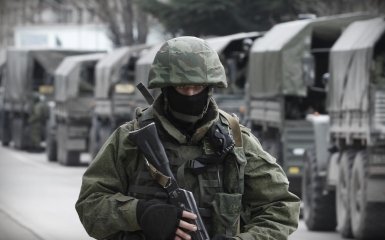Since February 2022, the total number of prisoners in Russia has decreased by at least 150,000 people. It is likely that most of these prisoners were released in exchange for agreeing to fight as part of the occupying forces against Ukraine.
Points of attention
- Since February 2022, the total number of prisoners in Russia has decreased by at least 150,000 people, most of whom may have been recruited to fight in Ukraine.
- Founded by Yevgeny Prigozhin, the PMK recruited more than 48,000 prisoners, of whom more than 17,000 died in combat, but after Prigozhin's death, the company is headed by his son and commanded by Lotus.
- The Wagner PMC has withdrawn from the front line in Ukraine, but maintains deployments in Belarus, Mali and the Central African Republic, according to British intelligence.
- According to the Financial Times, Russia may announce a new wave of partial mobilization with the aim of increasing the size of the occupying army by 15%, but the need for new reserves may limit the ability to conduct offensive operations.
What is the number of imprisoned Russians recruited for the war against Ukraine?
The agency noted that Yevgeny Prigozhin initiated recruiting prisoners for war against Ukraine. His mercenary formation recruited over 48,000 prisoners, more than 17,000 of whom later were killed in hostilities.
Although Yevgeny Prigozhin died in a plane crash on August 23, 2023, his private military company survived him and is now managed by his son Pavlo Prigozhin and commanded by Anton "Lotos" Yelizarov, the report says.
The British Ministry of Defence notes that in May 2023, units of the "Wagner Group" were withdrawn from the front line in Ukraine.
They were replaced by Chechens and irregular forces of the Volunteer Corps of the Ministry of Defence of Russia. While the African Corps replaced the "Wagner" units in Syria and Libya in late 2023 and early 2024, respectively. Nevertheless, "Wagner" maintains an independent deployment in Belarus, Mali and the Central African Republic, — notes the British intelligence.
Mobilisation in Russia
According to the Financial Times, a new wave of "partial mobilisation" may be announced in Russia by the end of 2024—the beginning of 2025.
Despite heavy losses, the army of occupation is now 15% larger than when full-scale war began. Financial incentives that raised military salaries to unprecedented levels played the biggest role in persuading Russians to go to war.
The Institute for the Study of War estimated that replenishing the occupying army with recruits would not allow the Russian Federation to conduct large-scale offensive operations in the summer in several directions. New reserves would not be able to act as penetration forces of the first or second echelons.




